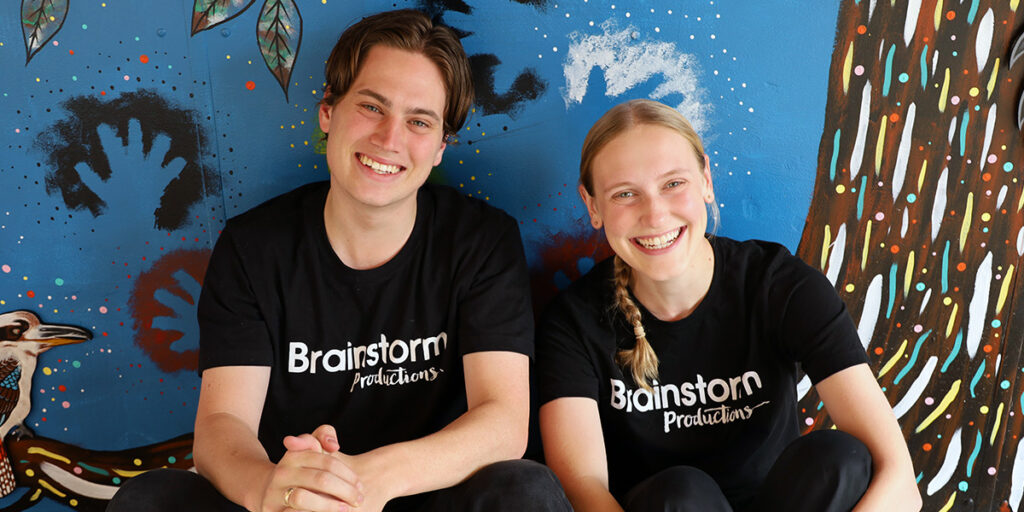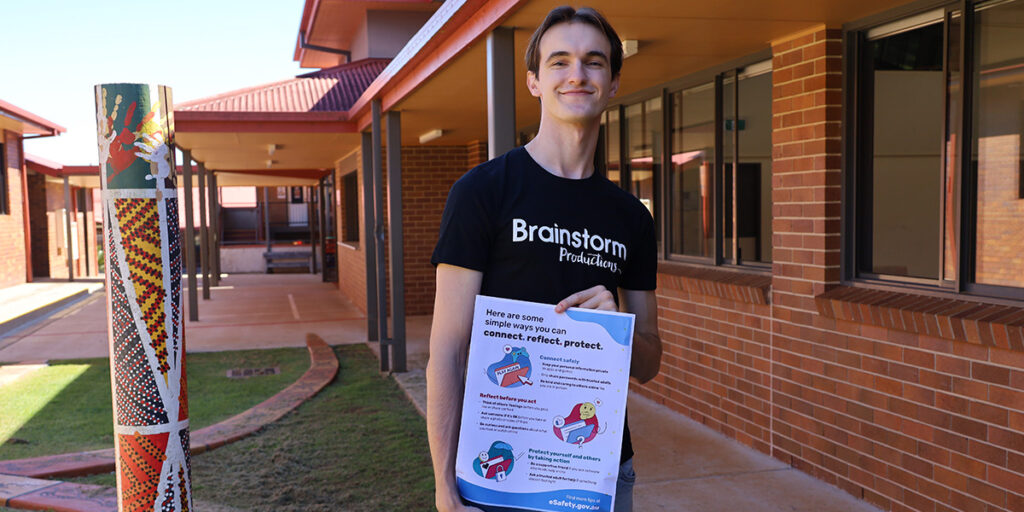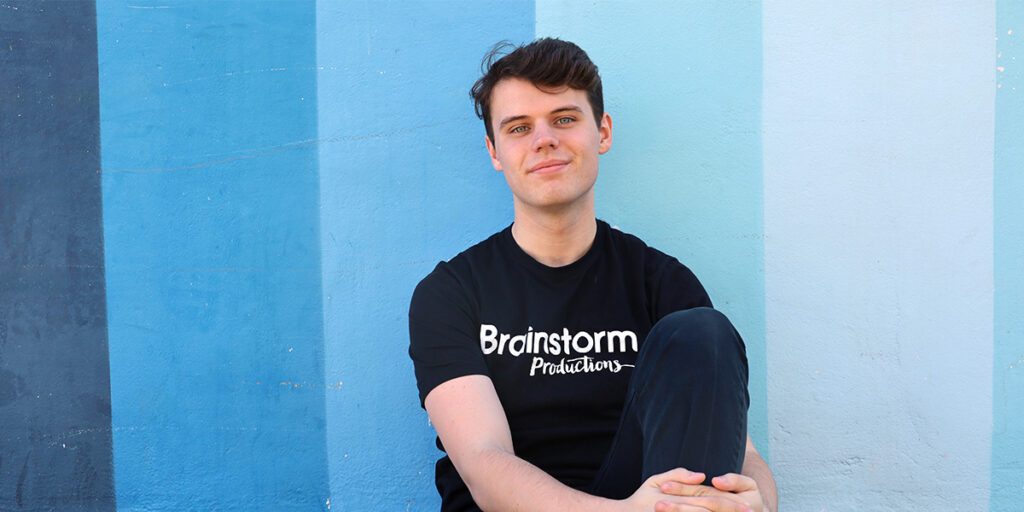Year 12 exams are nearly over, which means school leavers are letting their hair down and starting to celebrate. Schoolies events are on the radar of parents and teachers, and Year 11 students may be starting to plan their own celebrations for next year. Preparation is key, so it’s a good time to start having conversations about the good, the bad and the ugly of the Australian Schoolies ritual.
Schoolies events are viewed by many as a rite of passage for adolescents, marking their transition into adulthood, greater independence, and a highly-anticipated life after twelve years of schooling. The event is seen as an opportunity to unwind after exams, have fun with friends, build new relationships, and create shared memories [1]. Research also shows, however, that excessive alcohol consumption is considered by many adolescents to be an integral part of the Schoolies experience [1, 2].
There is a lot of build up to Schoolies. Events are hyped on social media and kids on the verge of finishing school may feel pressure to get on board. Many have positive expectations of the role alcohol and drugs will play in the celebrations, viewing them as disinhibitors that will help them to have fun, relax and create memories; however, they are also concerned about the negative consequences for themselves and their peers [1]. Some of these consequences include hangovers, come-downs, physical injury, looking after intoxicated friends, alcohol-fuelled violence and encounters with the police. Girls in particular are concerned about issues such as unwanted sexual advances, drink-spiking, and dealing with ‘toolies’, or older men who come on board the party train.
One study revealed that a large proportion of schoolies surveyed had experienced adverse outcomes associated with excessive alcohol consumption, including vomiting, blackouts and unprotected sex [3]. We also know that some school-leavers will feel pressure to participate in binge drinking and other risky behaviours, for fear of being excluded by their peers and missing out on shared experiences [1].
Maintain open communication
While kids are excited, parents may be daunted. The media does a good job capturing sensational footage, entailing reckless and extreme behaviour. The upside of well organised events and vigilant media coverage, is a tightening of safety conditions. Schoolies events are highly regulated. Drug sniffing dogs are used, and there are ample medical and law enforcement services at the ready. There is a lot of emphasis on checking ID, and systems are in place to make sure only genuine school leavers attend events.
But when a large number of teenagers congregate in one place, many with the intention of testing their limits, parents will be understandably worried. The situation may be further complicated by the fact that many school leavers are not yet of legal drinking age, and that drinking alcohol is inconsistent with the core values of many families.
A recent study found that parents are concerned about the risks associated with excessive alcohol consumption at Schoolies; however, they also view this as an inevitable part of the event [4]. The majority of parents opted for a harm minimisation approach, characterised by open communication around alcohol use, looking after friends, and respectful behaviour.
Cracking down on kids and imposing strong restrictions may be damaging to relationships and prevent honest discussion about the risks. When parents convey an attitude of openness and respect, and provide information and unwavering support, then adolescents may be more likely to seek help when they feel unsafe. Paul Dillon from Drug and Alcohol Research and Training Australia (DARTA) recommends parents use this mantra: “You can call me anytime, anywhere. If something goes wrong and you need me – I’ll be there.”
Parents might also want to provide an ‘out’ for their child, should they get into difficulties, or are no longer enjoying festivities. There can be pressure to see the week out, but parents can give kids an excuse to cut it short, and avoid embarrassment.
Be well prepared
Ideally, Schoolies events and accommodation should be booked well ahead. Parents can help their kids to plan for a safe experience, by staying with friends they trust, and ensuring the accommodation is appropriate and in a reasonably safe neighbourhood. Reading reviews can help. Most accommodation will have a contract, that needs to be signed by someone 18 years and older.
Parents should ensure they have the contact details of the accommodation, and the numbers of their teen’s friends. If the school leaver is heading overseas, they need to know the laws and restrictions pertaining to drug and alcohol use in that country. It’s a good idea for parents to have copies of their teen’s passport, flight details, and credit cards should anything go wrong. They should have travel insurance, and register their trip with DFAT. For a full checklist of things to prepare for Schoolies, visit the DARTA website.
Have an emergency plan in place
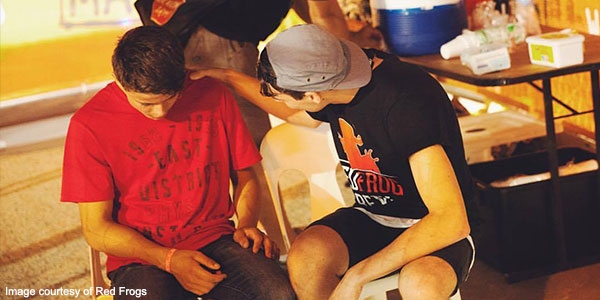
Of course, excessive alcohol and drug use can lead to accidents and emergencies. It is therefore important to talk about an emergency plan, should things go wrong.
Schoolies need to know how to contact emergency services if they or their friends get into trouble. The Schoolies website has a list of key emergency contacts they can save to their phones.
Research has shown that schoolies expect their friends to look out for them when something goes wrong, and they are prepared to take on this responsibility when their friends need help [2]. The QLD government provides information to help schoolies ‘be safe and watch your mates’. Schoolies also place a lot of trust in the event organisers to create a safe environment. They look to youth-led support teams, such as the Green Team and Red Frogs, to provide assistance throughout the event [2]. So it may help to seek these groups out when they first arrive.
Explore options
While alcohol-fuelled parties may be a priority for many schoolies, not all adolescents are keen to participate in these kinds of events.
In a study of recent school leavers, around a quarter reported they did not attend a ‘typical’ Schoolies event, and/or they engaged in activities where alcohol was not the focus [5]. For many of these young people, a week spent with friends away from parents and school was sufficient celebration, and they viewed the drunken behaviour of their peers as undesirable. More broadly, there is evidence that alcohol consumption amongst 14-19 years has decreased significantly since 2013, and the use of others drugs is also on the decline [6].
These findings are encouraging, and offer a more positive platform for parents and teachers to start conversations around Schoolies. Researchers have recommended that more alternative activities be offered to school leavers, in an attempt to shift the culture and expectations regarding the role of alcohol and drugs in these events [1, 5]. Parents and teachers can help students explore options that will provide an experience of “shared emancipation” and letting off steam that is less associated with the use of substances and dangerous behaviour.
Be informed
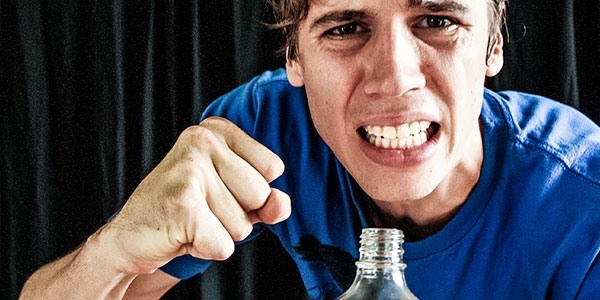
School leavers need to have information about the potential risks of Schoolies, and understand their options when it comes to making decisions about alcohol and drugs.
Education around alcohol, drugs and risk-taking should give kids a starting point to discuss these issues amongst themselves. It should empower them, and equip them with knowledge and strategies. Education resources also help parents and teachers understand the risks, and give them tools to be in a position to support and guide kids through the Schoolies experience.
ReachOut.com has some great information and resources for young people about drugs, alcohol, safe sex and other issues that may come up during Schoolies.
Theatre productions for schools are also helpful for stimulating discussion around these issues. Brainstorm Productions’ Cheap Thrills is a high school performance, touring in Terms 2, 3 and 4 next year. This one man show follows the journey of Andy – he and his friends experiment with alcohol and marijuana, leading to the loss of one of his mates. A video of Andy’s sister smoking and getting drunk ends up on YouTube. His dad drowns his sorrows in alcohol, his mum pops painkillers to handle stress, and his girlfriend has started using party drugs. Students get access to what’s going on in Andy’s head, and have the opportunity to understand the reasons behind the character’s choices.
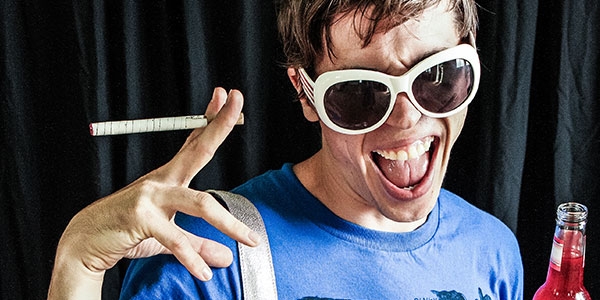
Theatre in Education is a creative way to spark conversation about substances and risky behaviour. For example, a teacher at Kawana Waters State College had this to say about Cheap Thrills: “Students were totally engaged, laughing, listening, asking and answering questions and commenting on the serious issues of choices, misuse of alcohol and drugs, family influences, friendships and peer pressure. 10/10”
Keeping the dialogue open and positive, such as through school theatre productions and conversations at home, will help adolescents make good choices and stay safe during this exciting time in their lives.
References
[1] Pettigrew, S., Biagioni, N., & Jongenelis, M.I. (2016). Anticipating and addressing event-specific alcohol consumption among adolescents. BMC Public Health, 16, 661.
[2] Hutton, A., Cusack, L., Zannettino, L., Shaefer, S.J.M., Verdonk, N., & Arbon, P. (2015). What are school leavers’ priorities for festival preparation? Australian Journal of Primary Health, 21, 249-253.
[3] Lam, T., Liang, W., Chikritzhs, T., & Allsop, S. (2014). Alcohol and other drug use at school leavers’ celebrations. Journal of Public Health 36, 408-416.
[4] Irwin, K., Hill, P., & Hutton, A. (2017). Parental concern: Parents discuss how they support their adolescents attending Schoolies events in Australia. Comprehensive Child and Adolescent Nursing, 31, 1-14.
[5] Pettigrew, S., Biagioni, N., Daube, M., Jones, S.C., Chikritzhs, T., & Kirby, G. (2015). Understanding and addressing the Schoolies phenomenon. Australian and New Zealand Journal of Public Health, 39, 135-40.
[6] Australian Institute of Health and Welfare. (2017). National Drug Strategy Household Survey 2016: Detailed Findings. Canberra: AIHW.


